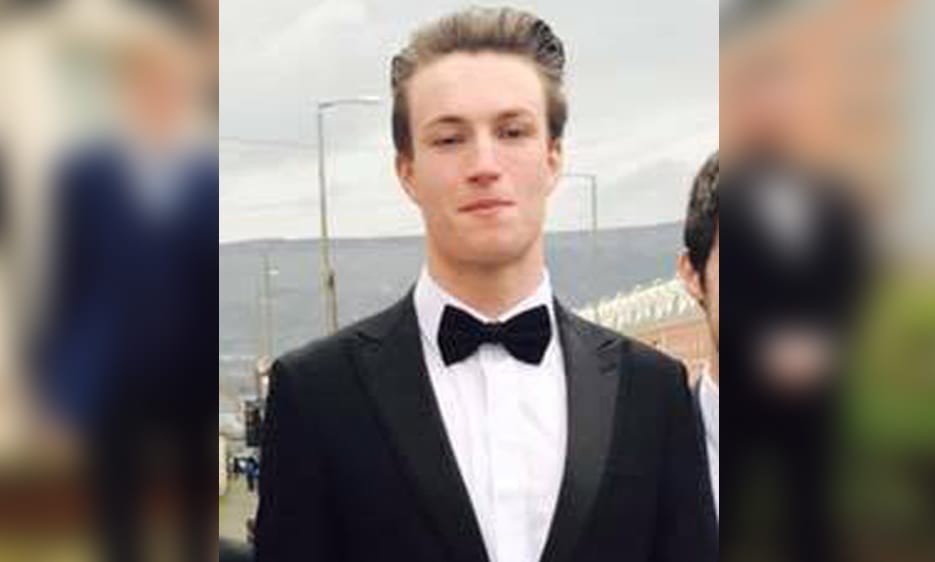
A lifeguard told a jury today the memory of a man being pulled unconscious from a swimming pool in Armagh “will never leave me.”
Giving evidence on his own behalf, William Holden told the Newry Crown Court jury hearing his trial he was “quite badly” impacted by the death of Christopher Rogers in April 2017.
“It impacted me quite badly,” 26-year-old Holden told defence KC Gary McHugh, “lifting someone out of the pool my own age I don’t think will ever leave me.”
“Did you and other members attend the funeral,” the senior barrister asked him and Holden confirmed “yes, the whole centre did.”
Concluding his evidence in chief Mr McHugh asked the former lifeguard: “Do you believe you could have done anything differently to prevent this tragedy?” But Holden told him “from my training at the time no, definitely not.”
On trial each facing a single count that being employee, they were in breach their duty to others on April 7, 2017 in that they “failed to take reasonable care for the health and safety of other persons who may be affected by your acts or omissions at work” are:
– Cathal Forrest-McVeigh (35), from Dunamony Road in Dungannon;
– Holden, from Unshinagh Lane in Portadown and
– James Monaghan (26), from Folly Lane in Armagh.
The jury have heard that having swam two and a half lengths of the Orchard Leisure Centre pool underwater Mr Rogers broke the surface and then, having tragically suffered a hypoxic blackout, the 20-year-old “accomplished swimmer” sank to the bottom of the pool where he remained for just over five minutes before he was pulled out.
The jury have heard that during the time Mr Rogers was submerged, the lifeguards were aware of him and had been observing him, that McVeigh and Monaghan were engaged in conversation for two minutes and twenty seconds and that before they attempted a rescue, McVeigh had banged on the steps with a pole and had asked another swimmer to check on him, that swimmer believing that he got a “thumbs up” sign from the 20-year-old.
Tragically, that “thumbs up” signal was actually Mr Rogers’ body experiencing decerebrate and decorticate posturing, where his limbs moved involuntarily during a seizure brought on by his brain being starved of oxygen.
It is the Crown case that each of the defendants breached their duty of taking reasonable care by waiting too long to initiate a rescue, that the prolonged changeover of pool duties distracted them and that they “missed the signs” that Mr Rogers was in danger.
The jury have also heard, however, that during their training and induction, the lifeguards received no guidance about hypoxic blackouts or the signs to look for or about the dangers of prolonged breath holding and extensive underwater swimming.
Today (Thursday) Holden, who was in the high chair during the incident, told the jury he had not worked as a lifeguard for seven years but at the time, he knew that Mr Rogers “was a really, really good swimmer” and that he was training to take his skills “to the next level”.
As part of his training regime, the 20-year-old “would do a couple of lengths underwater and then hold his breath at the bottom of the pool for an extended time”.
Mr McHugh asked him whether at the time there was “anything about his movement of positioning or anything that gave rise to concern” but Holden told him “no, Mr Rogers’ swimming as always, was well controlled so there was no cause for concern whatsoever”.
Holden, who told the jury he now works as a schools’ strength and conditioning coach, confirmed that he had watched as the other swimmer approached the submerged Mr Rogers and seemingly gave the thumbs up sign, maintaining that he had “no concern whatsoever”.
Under cross examination from prosecuting KC Geraldine McCullough, Holden told her he had “made an assessment that he was holding his breath and doing the training that he always did”.
Outlining that Mr Rogers was a regular attender and swimmer at the pool, he maintained that he had seen the 20-year-old “remaining static,” holding his breath at the bottom of the pool.
Despite repeated suggestions from Ms McCullough, Holden refuted that he was concerned about Mr Rogers, describing how the lifeguard team “wanted to get him up…to educate him about hyperventilation” and because there was a lifeguard changeover.
The jury have watched several CCTV clips covering the pool and the tragedy and one was replayed to the three men and eight women today showing Holden and a fourth lifeguard standing at the bottom of the high chair, looking towards Mr Rogers.
“Isn’t it the case that you were looking over at him because you were concerned about him,” Ms McCullough put to the defendant but Holden told her “no – we thought he was holding his breath and doing breath holding exercises.”
“If you wanted to get him up you should have jumped in to the pool,” the senior barrister suggested but Holden maintained that “we were not concerned about him – we thought that he was holding his breath.”
“I cannot stress enough that we were not concerned so there was no reason to jump into the pool,” declared Holden.
Citing that the Crown case is that he and his co-accused failed to take reasonable care for the health and safety of Mr Rogers, Ms McCullough put to him that he “ought to have realised there was a risk” and that there was a need to rescue the stricken 20-year-old.
“I do not agree with that at all,” Holden told her, “the training and knowledge I had at that time served me with no need to get into the water, nor did as doctor at the side of the pool or a nurse swimming over him or two other lifeguards on the pool deck.”
The trial continues.





